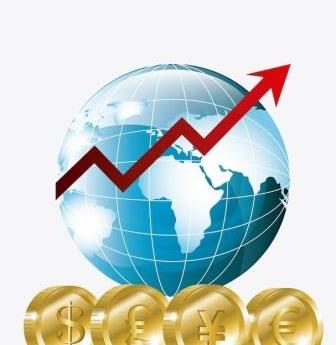The Global Economic System: How It Works and Why It Matters

The global economic system is a complex web of interactions, transactions, and relationships that span borders, connecting countries and influencing people’s lives worldwide. It is a vast and intricate network that shapes not only the financial well-being of nations but also their political, social, and environmental landscapes. This article will explore how the global economic system works, why it matters, and the challenges it faces in the 21st century.
Understanding the Global Economic System
At its core, the global economic system is a framework that facilitates the production, distribution, and consumption of goods, humidity, and services on a global scale. It is composed of several key components:
- Trade: The exchange of goods, productivity, and services and honesty between men and countries is fundamental to the global economic system. International trade allows all countries to specialize in producing what they do best and acquire goods and services they cannot produce efficiently.
- Financial Markets: Global financial markets, including stock markets, bond markets, and currency markets, provide avenues for allocating capital and investments across borders. These markets enable businesses to raise funds, individuals to invest, and governments to manage their finances.
- Multinational Corporations: Large corporations operate globally, engaging in activities such as production, distribution, and marketing across multiple countries. They play a significant role in the global economy by generating employment, contributing to GDP, and influencing international trade.
- International Organizations: Organizations like the United Nations, International Monetary Fund (IMF), World Bank, and World Trade Organization (WTO) work to promote cooperation and address global economic issues. They facilitate negotiations, provide financial assistance, and promote economic stability.
- Currency Exchange: Currency exchange rates affect the flow of capital, trade balances, and international investments. Changes in exchange rates can impact a country’s economic competitiveness and ability to attract foreign investment.
- Global Supply Chains: Many products are manufactured through global supply chains, where components and materials are sourced from different countries. This has made production more efficient but also more vulnerable to disruptions.
Why the Global Economic System Matters
The global economic system is not an abstract concept; it profoundly impacts individuals, nations, and the world as a whole. Here are several reasons why it matters:
- Economic Growth: Global trade and cooperation have contributed to unprecedented economic growth over the past century. Due to economic globalization, many countries have seen improvements in living standards, poverty reduction, and access to education and healthcare.
- Interconnectedness: The world is more interconnected than ever before. Events in one part of the world, such as a financial crisis or a pandemic, can have far-reaching economic consequences across borders.
- Jobs and Employment: The global economy creates job opportunities, and the availability of jobs in one country can depend on the economic health of other countries. Many jobs are tied to global supply chains and international markets.
- Standard of Living: Access to a wide range of goods and services worldwide has improved the standard of living for many people. The global economy influences consumer choices and lifestyles.
- Political Stability: Economic prosperity can contribute to political stability within countries. Conversely, economic hardship can lead to social unrest and political upheaval.
- Environmental Impact: The global economic system is intertwined with environmental issues. Economic activities, such as industrial production, good culture, and transportation, contribute to environmental challenges like climate change and resource depletion.
- Geopolitical Relations: Economic interests often shape diplomatic relations between countries. Trade agreements, tariffs, and economic sanctions are tools used in international diplomacy.
Challenges and Concerns
While the global economic system offers numerous benefits, it also faces significant challenges and concerns:
Inequality: Globalization has led to growing income and wealth inequality within and between countries. Only some benefit equally from economic integration and marginalized groups can be left behind.
Environmental Sustainability: The global economic system’s reliance on fossil fuels and resource-intensive production methods raises concerns about its long-term sustainability and contribution to environmental degradation.
Financial Crises: The interconnectedness of global financial markets makes the world vulnerable to financial crises that can spread rapidly across borders, as demonstrated during the 2008 financial crisis.
Trade Tensions: Trade disputes and protectionist measures between countries can disrupt global supply chains and hinder economic growth.
Geopolitical Conflicts: Economic interests can contribute to geopolitical conflicts and trade wars, as seen in tensions between major economic powers like the United States and China.
Conclusion
The global economic system is a dynamic and complex web of interactions that shape our world. Its impact on individuals, communities, and nations profoundly influences everything from economic growth and employment to political stability and environmental sustainability. While it offers significant benefits, it also poses challenges and concerns that must be addressed to create a more equitable, sustainable, and resilient global economic system in the 21st century. Understanding how the system works and its implications is essential for informed decision-making and global cooperation.

